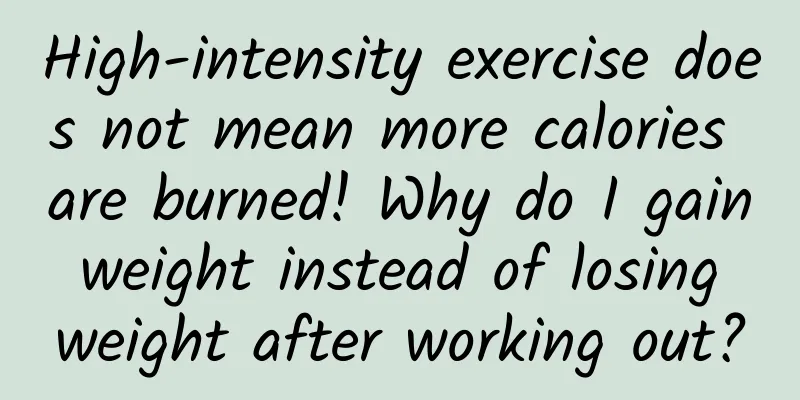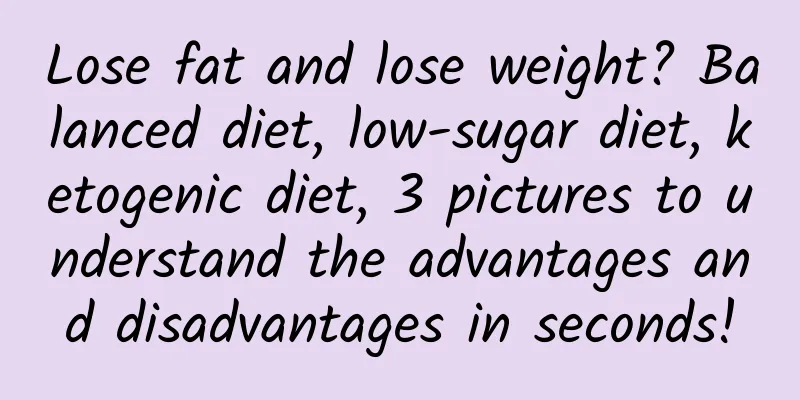High-intensity exercise does not mean more calories are burned! Why do I gain weight instead of losing weight after working out?

|
A year or two ago, my friends and I would ride bicycles several days a week for exercise. We would ride for more than an hour on weekday evenings and for a whole morning or afternoon on weekends. We always use Runkeeper, an app that records cycling progress and exercise calorie consumption. When we first saw that a round trip would burn a sandwich or even a lunch box, we all thought that we were not far from our ideal weight. But… a month or two passed, and I lost weight at first, but then my weight quietly increased. Why? I have always wanted to find a good answer to this question, but no reasonable explanation came to me. Until recently, I found an explanation that convinced myself! Exercise doesn’t mean you burn more energy the more you moveIt is very basic for people who study nutrition to count calories. Whether you want to calculate a person's basal metabolic rate, activity consumption, food calories... you can calculate them all, and there are theoretical foundations behind them. For example, taking a person's total energy demand for a day as an example, the current model used is the "Additive TEE model". In addition to the basal metabolic rate, there is also the thermogenic effect of food intake, and the total calorie consumption is the activity consumption throughout the day. The more activities you do, the more total calories you will consume, and they have a linear relationship with each other. Of course, this model is fine in many studies. What if we work harder to increase our activity level?Unfortunately, research has found that when people become more active to a certain extent, their total energy consumption slows down and is no longer a linear relationship as expected. Scientists call this situation the Constrained TEE model. The reason why energy consumption slows down after exceeding a certain amount of activity may be that humans adapt to this situation and regulate the inactive metabolic consumption in the body. The reason why energy consumption slows down after exceeding a certain amount of activity may be that humans adapt to this situation and regulate the inactive metabolic consumption in the body. This is an undesirable result for people who want to lose weight, but from the perspective of human survival, this may be a skill that sustains life. To use a mobile phone as an analogy, you don't have to set anything, your body will decide on its own whether to switch to power saving mode, such as turning off the background operation of the app, reducing the quality of graphics, etc. It’s better to lose weight slowlyDon't set yourself a very strict training or exercise at the beginning, because training too hard will quickly switch your body to low-energy mode, which will be embarrassing, especially if your weight loss plan is based on the balance between exercise consumption and diet. Don't set yourself a very strict training or exercise at the beginning, because training too hard will quickly switch your body to low-energy mode, which will be embarrassing, especially if your weight loss plan is based on the balance between exercise consumption and diet. After entering the low-energy mode, the total energy consumption is reduced. At this time, if you still eat according to the diet plan, you will have extra energy intake, and after a long time you will see the number on the scale increase. This article is from Nutrition ※For more information, please see "Nutrition Notes" |
Recommend
What are the prevention methods of chocolate cysts?
Everyone needs to actively grasp the preventive m...
What are the causes of uterine fibroids? Are uterine fibroids benign tumors?
Uterine fibroids are one of the common gynecologi...
Can you still get pregnant with endometriosis?
Patients with endometriosis can get pregnant, but...
The weight loss code of the 12 zodiac signs: Pisces is prone to gaining weight again
After entering autumn and winter, the lower tempe...
Common treatment methods for adnexitis
The frequent occurrence of adnexitis will cause a...
What is the cause of Trichomonas vaginitis?
Trichomonas vaginitis is a common gynecological d...
Common causes of dysmenorrhea
Dysmenorrhea is a common gynecological disease in...
Will taking motion sickness medicine frequently affect menstruation?
Taking motion sickness medicine frequently may ha...
What is the reason for not getting pregnant and not having menstruation?
For women, there is a "creature" that e...
What is the best way to treat irregular menstruation? Is Siwu Decoction effective for irregular menstruation?
What medicine is effective for irregular menstrua...
Analysis: What are the causes of vulvar leukoplakia?
At present, medical knowledge says that vulvar le...
Can I keep my uterus if I have an 11cm uterine fibroid?
Whether the uterus can be preserved for an 11cm u...
Can cervical precancerous lesions be cured?
Cervical precancerous lesions are curable, but th...
Tests to diagnose functional uterine bleeding in adolescence
Dysfunctional uterine bleeding in adolescence is ...
What are the symptoms of a 10 cm ovarian cyst on the left side? Will it cause dysmenorrhea?
Ovarian cysts are manifested as lumps on one or b...









